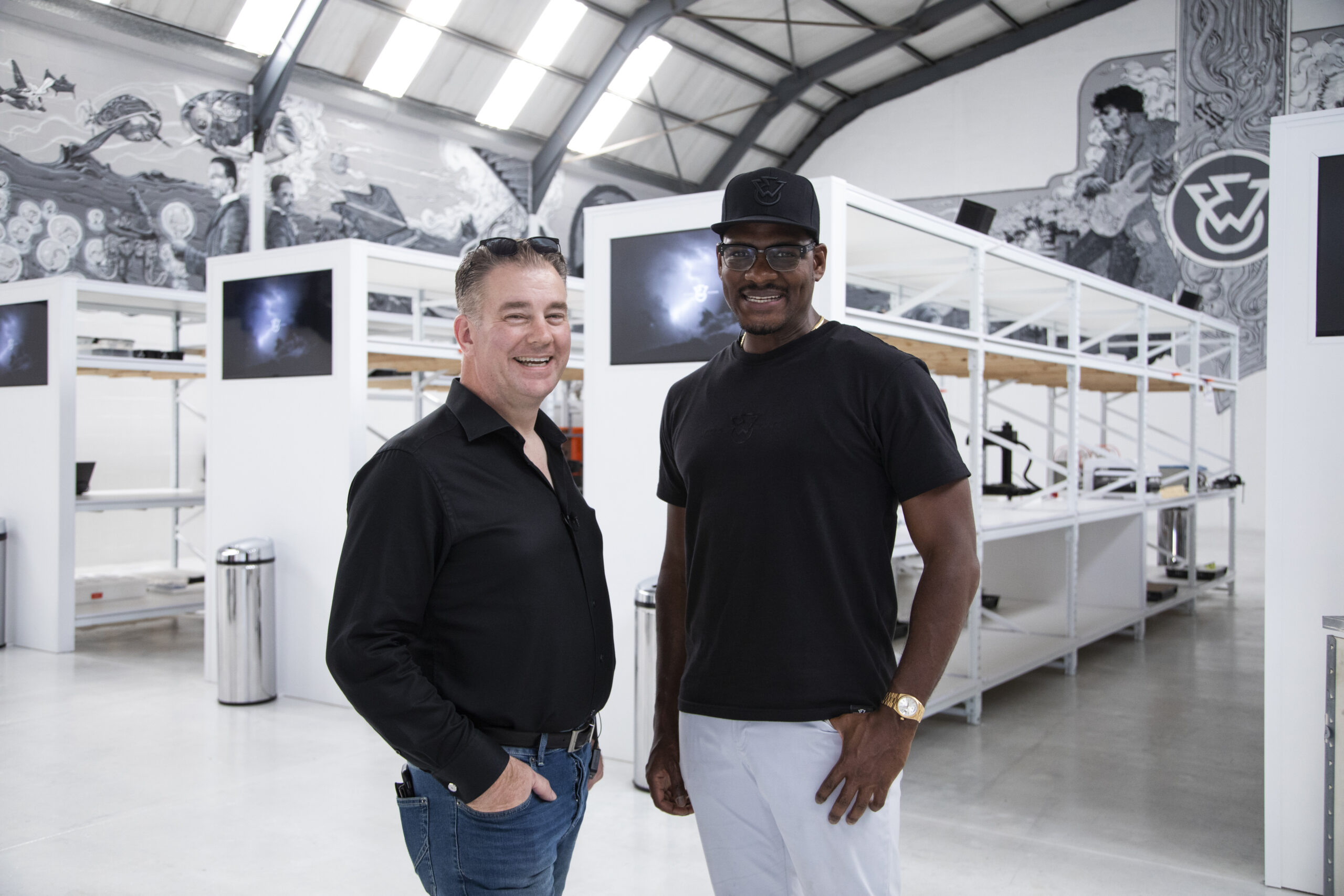Business Tech
Global start-ups give
SA thumbs-up
The arrival and expansion of international start-ups in South Africa highlight the appeal of the region, writes ARTHUR GOLDSTUCK.
Three international start-ups this week announced their entry into South Africa, either as a major element of their global expansion, or an opportunity to make an impact in this country.
Human resources technology (HRtech) provider Atlas this week said it has raised US$200-million to support global expansion, and plans to make South Africa its regional headquarters for the Middle East and Africa. Corporate meeting technology company Troop raised $11-million to fund expanding the company’s presence in South Africa and globally.
The most intriguing start-up expansion into the local market, however, was announced by EvansWerks, a 3D manufacturing start-up that has launched a 650 square meter design centre in Cape Town.
The company was founded in 2021 by former American film-maker turned inventor Justin Eugene Evans, and has a presence in four locations globally. The EvansWerks Creative Lab was financed jointly by Evans and his business partner and only outside investor, Jamaican-American actor Jason R Moore, best known for a central role in the Netflix series The Punisher.
Both saw Cape Town as an ideal local hub, but almost selected Kiyv, which they “looked at” a few weeks before the Russian Invasion.
Evans told Business Times: “About five years ago, my wife and I were driving through Chicago engaged in a lengthy conversation: what made Silicon Valley take off like a rocket in the 1970s? And could it be replicated? We realised that Silicon Valley was never planned and yet inevitable. It had the right ingredients. We began listing those ingredients and realised that any place we wanted to build a business needed a majority of those same conditions.
“Cape Town meets the majority of those conditions. I believe it is already the Silicon Valley of Africa. In the next five years, the entire world will be talking about Cape Town.”
The company aims to simplify global access to 3D printing technology and production for industrial manufacturers and retail designers. Evans says he recognised a need in the region to provide reliable access to production with 24/7 uptime, cutting edge technology, and dramatically reduced delivery timelines, from concept to prototype.
The Creative Lab will provide equipment, including industrial 3D printers, milling machines, laser cutters, and on-demand 3D in steel, copper, titanium, resin, rubber, plastic and wood.

“The goal of EvansWerks’ Creative Lab is to help individuals and businesses across South Africa bring their ideas to life with cutting-edge technology and expert support,” says Evans. We provide space that is innovative and inspiring for clients to explore and create.”
Meanwhile, US-based global HRTech company Atlas, which aims to simplify international hiring and payroll, has chosen Johannesburg as the location of its regional headquarters.
CEO and founder Rick Hammell told a media briefing in Sandton this week: “The foundation of what we do is to help people, making sure we create opportunities where companies and talent are able to connect where they’ve never had that opportunity before.”
In September 2022, it raised US$200-million “to support its global expansion and meet the strong demand for remote working solutions and cross-border workforce management”. It is now putting a local senior leadership team in place to lead this growth, and has appointed Nobuntu Ndlovu, a seasoned senior marketing executive, as its regional VP of Marketing.
She says she expects strong demand from start-ups, technology and fintech companies seeking to expand abroad.
“We foresee strong demand to support South African businesses as they expand into the MEA region and beyond. There is also an opportunity to support regional companies looking to capitalise on the services that digital nomads provide.”
Troop, the global meeting planning technology platform, does not have a physical office in South Africa, as all employees work remotely. Its investment will go into increasing its local employee base considerably by 2025 “to enhance its innovative meeting planning ecosystem and offerings for the local market”. It plans to double its current South African employee base this year.
Co-founder Leonard Cremer said this week: “Troop’s expanding presence in South Africa comes at a crucial time, with the South African economy expected to make an upturn, and its meetings, incentives, conferences and events (MICE) industry likely to grow considerably over the coming year.”
Why Cape Town?
Justin Eugene Evans offered this checklist of reasons for locating a global start-up in Cape Town:
1: Deep water port. While Cape Town’s port could use some upgrades and doesn’t compare to Namibia, it’s a true deep water port.
2: International airport. Cape Town’s airport is better than San Jose’s airport in the 1970s. It’s a great airport and has sufficient direct flights to economic hubs around the globe. I can get to Frankfurt, Atlanta and London directly.
3: Excellent engineering programmes at top universities. Cape Town’s mechatronic programs are world class.
4: Democratic government with strong rule of law.
5: Mild climate.
6: Existing entrepreneurial infrastructure. While Cape Town’s investors aren’t as skilled at deal flow as Silicon Valley, the beginnings of a sophisticated investor class is emerging here.
7: Livability. This is where Cape Town excels. Imagine stepping off the plane into the San Francisco airport in 1982. Cape Town has the same jaw-dropping livability that the Bay Area had (past tense!) in the United States.
8: English as a primary business language.
“What it’s missing we’re trying to provide,” says Evans. “We want to provide the kind of tech infrastructure that makes it easy for a tech startup to thrive.”










